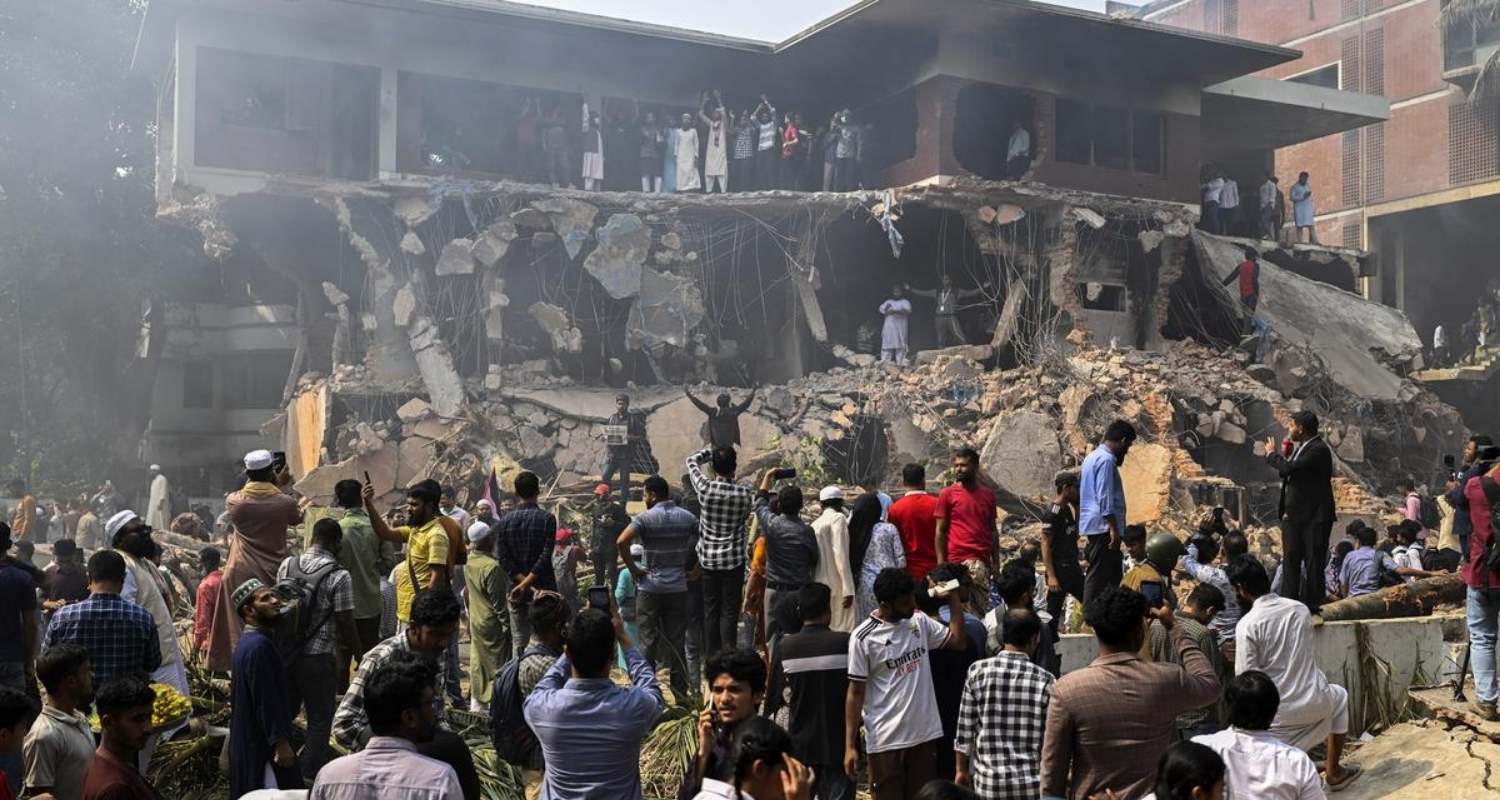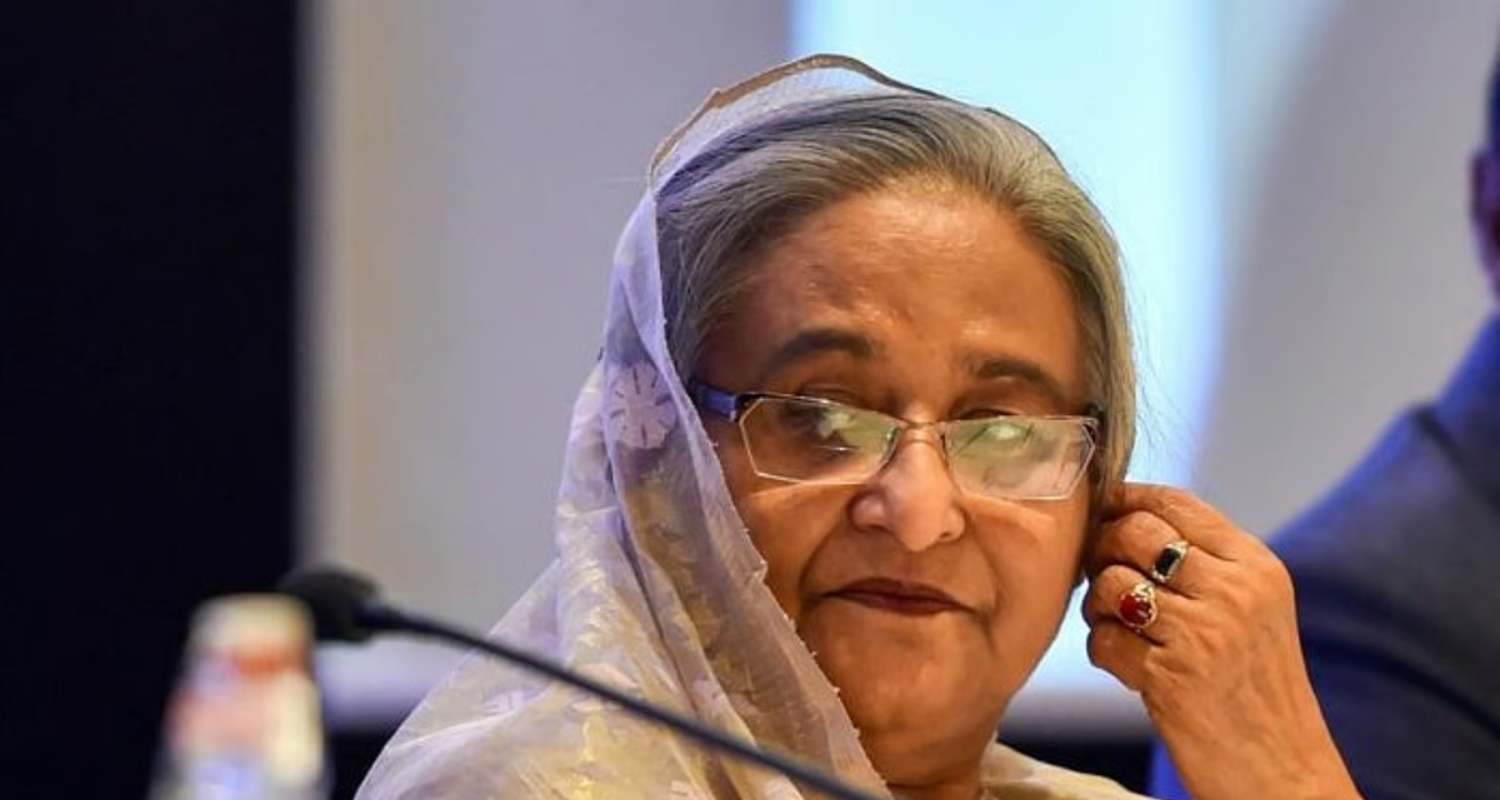Trending:
Blasts rock Dhaka ahead of verdict against Sheikh Hasina
Bangladesh erupted in unrest with explosions, arson, and nationwide protests as authorities braced for the International Crimes Tribunal's verdict on ousted Prime Minister Sheikh Hasina, who denounces the trial as illegal.News Arena Network - Dhaka - UPDATED: November 17, 2025, 08:05 AM - 2 min read

Sheikh Hasina also claimed Bangladesh being "turned into a militant state."
Bangladesh was plunged into chaos on Sunday night as a series of powerful explosions echoed through the capital and other major cities, exacerbating an already volatile atmosphere of unrest. Authorities deployed additional security forces in a frantic bid to quell the mounting tensions, which have been building in anticipation of a pivotal verdict from the International Crimes Tribunal (ICT).
The tribunal is poised to rule on grave charges against the country's ousted prime minister, Sheikh Hasina, who could face the death penalty if found guilty for her alleged role in a brutal military crackdown on a student-led uprising that unfolded last year.
The ICT Verdict: Charges of Crimes Against Humanity
The ICT, a special court established to address war crimes and atrocities from Bangladesh's 1971 Liberation War as well as more recent violations, is scheduled to announce its judgment in the coming days. The case centers on accusations of crimes against humanity stemming from the deadly July Uprising of 2024—a mass protest movement initially sparked by student demands for reforms in government job quotas but which rapidly escalated into widespread anti-government demonstrations.

Prosecutors have aggressively pursued the maximum punishment, formally requesting the death penalty for Hasina. The former leader, who fled to India in August 2024 following a military-backed ouster amid the uprising, has been tried in absentia alongside her former home minister, Asaduzzaman Khan Kamal. Evidence presented during the trial reportedly includes testimonies from survivors, video footage of the crackdown, and official documents detailing orders for lethal force against protesters.
The 2024 uprising resulted in hundreds of deaths, thousands of injuries, and widespread destruction, marking one of the bloodiest chapters in Bangladesh's recent history. Hasina's administration at the time authorised security forces to use live ammunition, leading to allegations of systematic human rights abuses.
Sheikh Hasina's Defiant Audio Message
In a dramatic escalation overnight, an emotional audio recording attributed to Sheikh Hasina was uploaded to the official Facebook page of her party, the Awami League. The message, which circulated rapidly on social media, served as a rallying cry to her supporters amid a government-imposed ban on public gatherings and protests.
"There is nothing to be afraid of. I am alive. I will live. I will support the people of the country," Hasina declared in a voice trembling with resolve. She commended her followers for their participation in prior demonstrations and implored them to intensify their resistance against the current interim administration.

Hasina's address was laced with accusations against the Muhammad Yunus-led interim government, which assumed power following her departure. She claimed the administration was deliberately orchestrating a campaign of persecution against Awami League members, denying them basic rights and freedoms. Specific grievances included reports of party activists being barred from entering schools, subjected to public assaults, and facing arbitrary arrests.
Nationwide Shutdown and Calls for Confrontation
In direct response to the impending ICT verdict, the Awami League leadership announced a complete nationwide shutdown (hartal) scheduled for Monday. The party framed the trial as a "politically motivated witch hunt" designed to eliminate Hasina and her allies from the political landscape.
During her audio message, Hasina explicitly endorsed the shutdown and urged a broader confrontation. "We have given a call for protest. I hope that the people of Bangladesh will fulfil this program and show these usurers, murderers, militants, Yunus and those who are with him," she stated, employing inflammatory rhetoric to characterise the interim government and its supporters.
She emphasised the resilience of the Awami League, asserting, "Awami League will not be allowed to do politics. But it is not that simple. This Awami League was built from the soil of the people. Its roots are very deep." This metaphor underscored her belief in the party's enduring grassroots support, despite its current suppression.
Accusations of a "Militant State" and Injustice
Hasina's criticisms extended beyond personal persecution to a broader indictment of the interim government's policies. She alleged that Bangladesh was being transformed into a "militant state," with the authorities purportedly protecting perpetrators of violence rather than delivering justice.
"Those who have killed police one after another—lawyers, journalists, cultural activists—their families will never get justice," Hasina lamented, referencing a wave of targeted killings and arson attacks that have plagued the country since her ouster. She accused the Yunus administration of shielding "murderers and militants" while systematically dismantling democratic institutions and Awami League's influence.
Also Read: Bangladesh lockdown: Protests erupt against Hasina trial
Government Response and Security Measures
As explosions rattled neighborhoods late Sunday—reportedly targeting government buildings, police stations, and infrastructure in Dhaka, Chittagong, and Sylhet—interim government officials condemned the incidents as acts of sabotage aimed at destabilising the nation. Rapid response teams were mobilised, with curfews imposed in high-risk areas and internet services intermittently disrupted to curb the spread of inflammatory content.
The interim government, headed by Nobel laureate Muhammad Yunus, has maintained that the ICT proceedings are independent and essential for national reconciliation. Officials have dismissed Hasina's claims as desperate attempts to incite unrest from exile, vowing to ensure the verdict proceeds without interference.
Broader Implications for Bangladesh
The convergence of the ICT verdict, Hasina's provocative audio message, and the planned shutdown has thrust Bangladesh into a precarious state. With Hasina safely in India—where she has been granted asylum—and her party facing existential threats, the unrest signals deep divisions in a nation still reeling from the 2024 upheaval.
Analysts warn that a guilty verdict could trigger widespread violence, particularly if it includes the death penalty. Conversely, an acquittal might embolden Hasina's supporters but undermine the interim government's legitimacy. As Monday's shutdown looms, the people of Bangladesh brace for what could be another turning point in their turbulent political saga.
Also Read: Sheikh Hasina verdict on Nov 17 as Dhaka goes into lockdown

